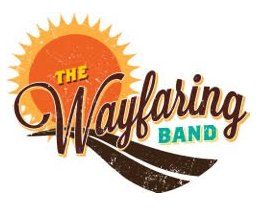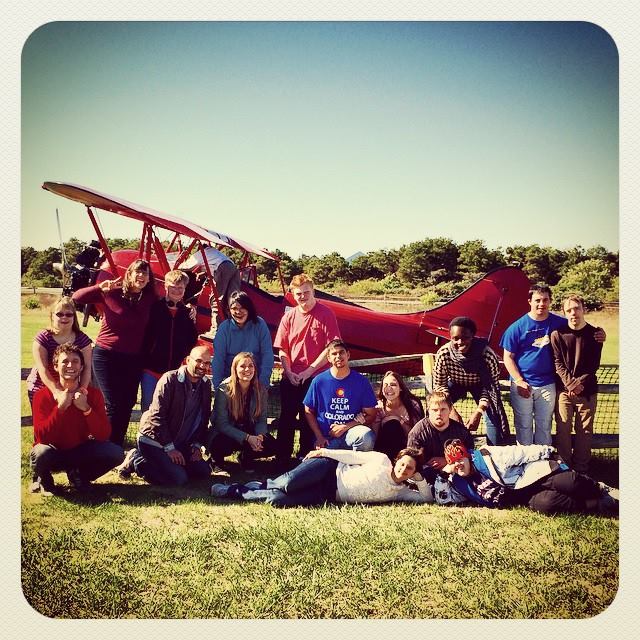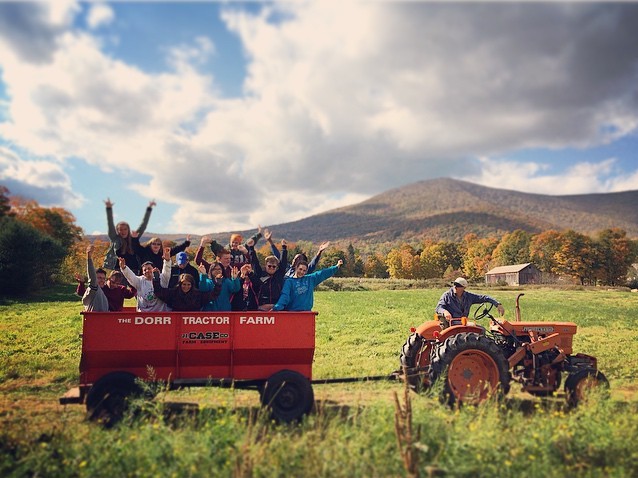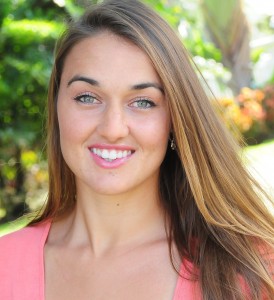“Although we like to rock, we are not a rock-and-roll band. We are a wayfaring band, which means we are a group of people who travel together. We offer road trips, social programs, and leadership for hire, serving young adults with special needs and emerging thought leaders.”
Madison House Autism Foundation’s Desiree Kameka recently interviewed (below) one of the leaders of a super hip band of neurodiverse travelers – Pavel Reppo. He and his business partner, Andrea Moore, started The Wayfaring Band, and, after learning about their progressive approach to bringing people of all abilities together, we think it’s safe to say that these guys are going places. Literally. Check out their adventure-filled Vimeo below to learn more about the kinds of fun they have:
How did the idea for The Wayfaring Band take shape?

Although we like to rock, The Wayfaring Band is not a rock-and-roll band. We are a band of travelers, and we offer road trips and social programs for young adults experiencing special needs and emerging thought leaders. Most of our participants with special needs experience differences like Down syndrome, autism, and other cognitive and developmental disabilities. Our thought leaders are neurotypical adults who are passionate about social impact, and they join our trips as paying clients, not volunteers. They participate in a leadership curriculum while we are on tour, and together we demonstrate a culture of mutual aid while we explore the world, reminding ourselves and the people we encounter that everyone has special needs, and everyone has special gifts.
The Wayfaring Band was born out of a need we noticed in the community and for a need to explore the very world around us. My business partner Andrea and I had our start at Adam’s Camp, an incredible organization that provides recreational and therapeutic services to kids, teens, and young adults experiencing special needs. In particular, Andrea and I were Adventure Camp counselors, wherein a group of kids, teens, and young adults would come spend a week in beautiful Colorado rock-climbing, swimming, river-rafting, etc. Time and time again, we heard that there weren’t enough programs and opportunities for younger and older adults experiencing special needs, post-transition. We felt keenly anointed to provide novel experiences for our friends to address this void. Our programming with The Wayfaring Band picks up where this cliff ends. In compliment, travel has been a cornerstone to my maturity and growth, molding and shaping my ideas and conceptions. The coupling of the power in travel while addressing a more practical need seemed too good to pass up.
You two could have found more conventional jobs … What inspired you to take a risk and start the Wayfaring Band instead?
The risk is in the reward. Andrea and I are both of the ilk that creativity and freedom of choice are two great forefathers in fueling interesting operations and original solutions. I believe in the power of innovative business in addressing social constraints and limitations. Entrepreneurship seized my senses, and I was energized to have the leeway to further my efforts in a fruitful manner. In compliment, Andrea is an artist using writing, performance, and photography to foster connection and dialogue across social and cultural lines. Our more unorthodox mediums seemed to meet head-on, culminating with the creation of The Wayfaring Band.
“Our idea of special needs is not something prohibitive or preventative, and it certainly shouldn’t take away the agency our friends express. We all are capable of so much.”
What is your favorite memory from past tours?
In March 2014, the Band traveled for a week to the beautiful Glen Eyrie Castle retreat center snug along the Garden of the Gods in Colorado Springs. Our wonderful friend and highly talented filmmaker Brad Conner joined us for the adventure. He provided us with a short film of our travels. The video houses my favorite memory while on tour. Band member Sean is seen climbing a giant boulder. I asked Sean if he wanted to climb atop the boulder and to my surprise, he said yes. I was struck with the magnitude of the task, not sure whether he could do it. And yet, I didn’t let my reservations oppose his enthusiasm. I urged and encouraged him with verbal praise, physical touch, and a more silent belief that he could do anything he so wanted. The actual climbing episode took many minutes, but his persistence never lessened. He huffed and puffed, and I took to assisting his conquest as best I could. The insurmountable boulder no longer seemed impassable nor impossible. Sean climbed atop the boulder, surprising himself, surprising myself, and many others. I carry his grit and determination in everything I do. Our idea of special needs is not something prohibitive or preventative, and it certainly shouldn’t take away the agency our friends express. We all are capable of so much. The memory is a reminder of our capacity to scaffold seemingly impassable or impossible tasks and to not let outside perception dictate what we can do.
What is a “Thought Leader,” and why are they included?
We define emerging thought leaders as neurotypical adults who are passionate about social impact. They are interested in enhancing their social skillset in order to better contribute to the social health and wellness of our global community. We attract participants who are empathetic, patient, and open to new ideas. It is not necessary for our thought leaders to have experience connecting with people who experience special needs: the only requirement is a willingness to learn and grow. Our thought leaders join our trips as paying clients, not as volunteers. Their primary purpose is to have their own needs met in terms of personal growth, and this allows them to connect with our young adults with special needs as peers, not helpers. To meet the needs of our thought leaders, we offer a leadership curriculum while we are on tour, enlisting participants as co-authors of an experiential learning environment.
Our thought leadership curriculum highlights some of the newest trends in advocacy, global leadership, and disability themes. Since our typical ratio for thought leaders to clients experiencing special needs is approximately 1:6, a standard trip involving 20 people includes only two thought leaders at a time. This allows us to provide targeted, personalized opportunities to practice the principals covered in our curriculum. Typically, our thought leaders join us for a single tour and participate in the curriculum only once.
Why do artists join the tour free of charge?
Our artist-in-residence is a working artist (either emerging or established) who attends a tour with the band on full scholarship. In exchange, the artist is responsible for creating an “ode” to our adventure in the medium of her choice. Odes are designed to celebrate or praise an object of inspiration, and this approach fosters a positive, creative, and fun environment that benefits the whole band. We include artists in our adventures because historically artists have been at the forefront of social change. Through their work, they help individuals and communities understand, appreciate, and challenge their own nature. Artists of every medium are storytellers, and The Wayfaring Band invites artists to help tell our stories so our adventures can be accessible to more than just our members.
What are your fears and hopes for the future of your Band Members?

We believe that all people have an indispensable, vital essence. We believe in creating communities where everyone experiences an authentic sense of belonging, and no one is relegated to the margins. Our dream is to model our vision of inclusivity everywhere we travel, fundamentally altering the way people experience difference. Without a doubt, my fears are almost all the mirror-image to our vision statement. I fear that our band members will never receive the acknowledgment of bearing an indispensable, vital essence. I fear that our band members will never experience an authentic sense of belonging, where they will be coarsely relegated to the margins.
My hope, on a more practical level, is that our band members leave with friends. I hope that they experience the incredible euphony of life and that our adventures can serve as a small guide map in illuminating the wonders of our environment. I hope so very deeply that our band members realize that they are not so different than you and I and vice versa. Andrea often remarks that we are diverse of experience, but similar of spirit. This adage has been etched into my mind. I hope we are all able to participate in such a world.
What about your tours do you think keeps Band Members coming back?
I jokingly often find myself feeling jealous about the things we do, and I get to go on all of the tours! Our tours are emblazoned with a spirit of adventure. We try and do things that are engaging and will stimulate our senses. We pride ourselves on creating itineraries anyone would find joy in doing. There is no checkmark for a special needs distinction. Rather, it’s quite the opposite. We create space for #everybodyin. We have not repeated a single tour, and don’t aim to do so for a long time. The world is full of amazing expeditions, but even more relevant, as staff, we don’t want to have the upper hand in knowing what to expect. When band member, Amanda, who experiences Down syndrome, approaches the staff and shares her fear of flying in a hot air balloon, we share in the same nervousness because we’ve never done it before or been to the Albuquerque Balloon Fiesta either. It’s a leveling effect that reinforces the concept of mutual aid, where no one is above one another. Instead, we are all in the band.

Desi’s Desk is a blog post written periodically by Desiree Kameka, Director of Community Education & Advocacy at Madison House Autism Foundation
Desiree’s work focuses on researching housing issues, advocating for autistic adults and their issues, and presenting her work at local and national gatherings. She visits many residential communities and social enterprises across the USA and highlights their unique victories and learning curves while sharing stories of residents with autism and other developmental disabilities. Desiree is also the project lead for Madison House’s interactive Autism Housing Network, which is currently in BETA testing. Her passion is empowering autistic adults and parents to create a future that is exciting and life-affirming by offering small group consultations for forming projects.

 70 Organizations Sign Important Letter to CMS
70 Organizations Sign Important Letter to CMS


